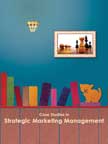Marketing Communications
 |
Details
Textbook:
Pages : 370; Paperback;
210 X 275 mm approx.
Suggested Case Studies
Workbook:
Pages :
299; Paperback;
210 X 275 mm approx, Sample Applied Theory Questions
Pricing
Textbook Price: Rs. 750;
Workbook Price: Rs. 700;
Available only in INDIA
Buy Now
Please allow 5 to 10 days for delivery.
Detail Table of Contents
Marketing Communications-An Overview : Chapter 1
SUMMARY:
Marketing communications are the means by which marketers try to inform, persuade and remind consumers, directly or indirectly, about their brands they offer for sale. |
|
advertising, personal selling or publicity. At present, marketers can develop a marketing communications mix consisting of advertising, sales promotion, personal selling, public relations, direct marketing, sponsorships, exhibitions, packaging, point-of-sale and merchandising, Internet, word of mouth and corporate identity.
The marketing communication mix a firm selects for promoting its products depend on a variety of internal and external factors. The internal factors include the nature of the product, the promotion objectives and the budget allocated for marketing activities. The external factors include the legal environment (regulations) governing the marketing activities of firms in their respective countries. Marketers also modify their marketing communication mix to help the product in the various stages of its life cycle; motivate the consumer depending on the buying stage he is in and match the competitor’s moves in the market.
Marketers should have a clear understanding of the communication process, its constituents and the channel dynamics while designing a communications plan. A typical communication process involves the transfer of a message from a sender to a receiver. In marketing context, the marketer who sponsors the advertisement is deemed to be the sender and the receiver can be any stakeholder of whom the sender wants to influence. In general, the sender encodes a message and sends it across to the receiver through a medium and the receiver when exposed to the medium decodes the message and sends a feedback. The communication process might be interrupted by various external or internal factors known as noise.



